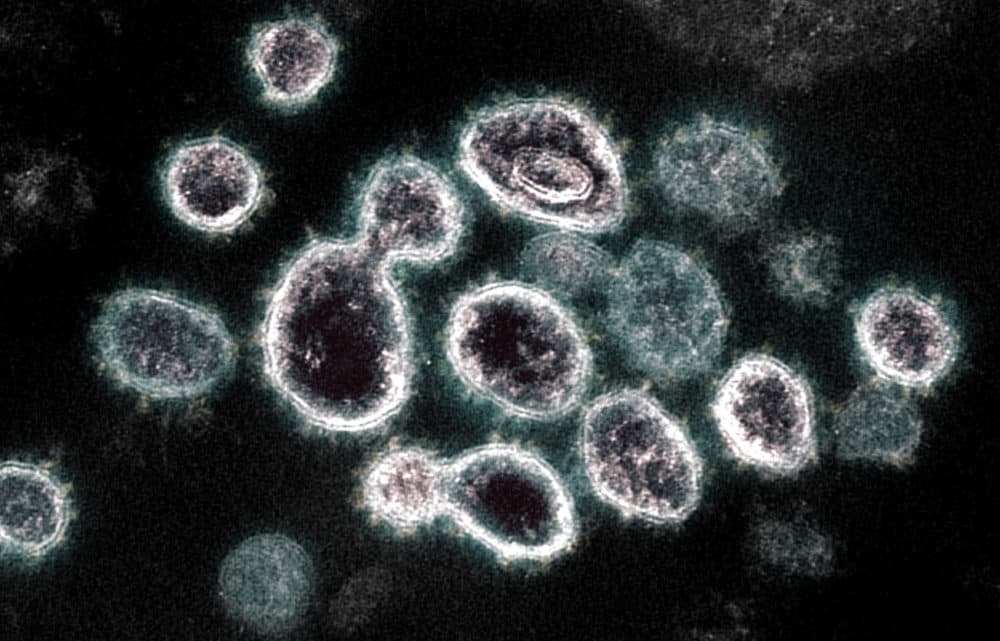Advertisement
Coronavirus Coverage
With pediatric COVID vaccines a reality, experts reexamine whether ‘herd immunity’ is possible

Now that children ages five to 11 are eligible for a COVID-19 vaccine, some epidemiologists are holding out hope that it might be possible to achieve “herd immunity,” which happens when enough people are immune to a virus to make spreading it unlikely.
Although it remains unclear whether this will become a reality, experts say reaching high vaccination rates among children will be a key step along that path.
“This is the most important piece,” said Robert Horsburgh, a physician and professor of epidemiology, biostatistics and global health at Boston University. “We've done a pretty good job with adult vaccines, but we were never going to get this under complete control until we get children vaccinated.”
While some states — including Massachusetts, Connecticut and Rhode Island — have vaccinated roughly 70% of residents, the virus has continued to circulate, although at lower rates than in some less vaccinated states. Horsburgh said one reason for this is children.
Despite being less likely than adults to get severely sick from the virus, children can still spread it. “They are a major way the virus stays in the community.” Horsburgh said.
"Anything is theoretically possible, but there has just been so much false information."
Christina Hermos, pediatric infectious disease doctor at UMass Memorial
The level of immunity required to achieve herd immunity varies depending on the disease, explained Christina Hermos, a pediatric infectious disease doctor at UMass Memorial. Some of the main variables include how contagious a disease is, how well vaccines work and how much members of the community move around.
When enough people in a community gain immunity, either through surviving an infection or though vaccination, it stops the uncontrolled spread of the disease. This is important because it protects everyone — including those who lack immunity, such as people with compromised immune systems or those who cannot be vaccinated because of their age or a medical condition.
Hermos is not optimistic that a whole state will get to herd immunity against the coronavirus without significantly higher vaccination rates than what has been achieved so far.
“Anything is theoretically possible, but there has just been so much false information,” she said. “It's been a war of facts against myths. It's just been a shame because it's really prolonged the pandemic.”
What may be more possible, Hermos said, is to achieve high enough levels of vaccination to provide community protection in certain smaller settings, such as a town or a senior center.
“I think we really do need to start thinking about herd immunity in schools now,” she said. She estimates that for a school to reach herd immunity vaccination rates likely need to be around 90%.
“I'm concerned that parents will not get their children vaccinated. I think that's an extremely serious problem.”
Dr. Robert Horsburgh, Boston University
Horsburgh said achieving this will hinge on parents agreeing to get their kids vaccinated, which is far from a sure thing. A recent national survey found that many parents are feeling cautious about the vaccine or don't plan to vaccinate their children at all.
He’s hoping to see a “very aggressive” campaign to convince families of school-aged children that the shots are safe and effective.
“I'm concerned that parents will not get their children vaccinated,” Horsburgh said. “I think that's an extremely serious problem.”
Eileen Costello, the chief of ambulatory pediatrics at Boston Medical Center, said it’s impossible to know at this point if any community will get to herd immunity. But, she argued, kids should get vaccinated for their own sake, because one in four current COVID infections are among children, and kids with asthma and obesity are more likely to have bad outcomes from COVID.
“These are quite prevalent problems in our population,” Costello said. “And so even if your child does not fall into that category, vaccination will protect the other kids in the classroom and, of course, the wider community.”
